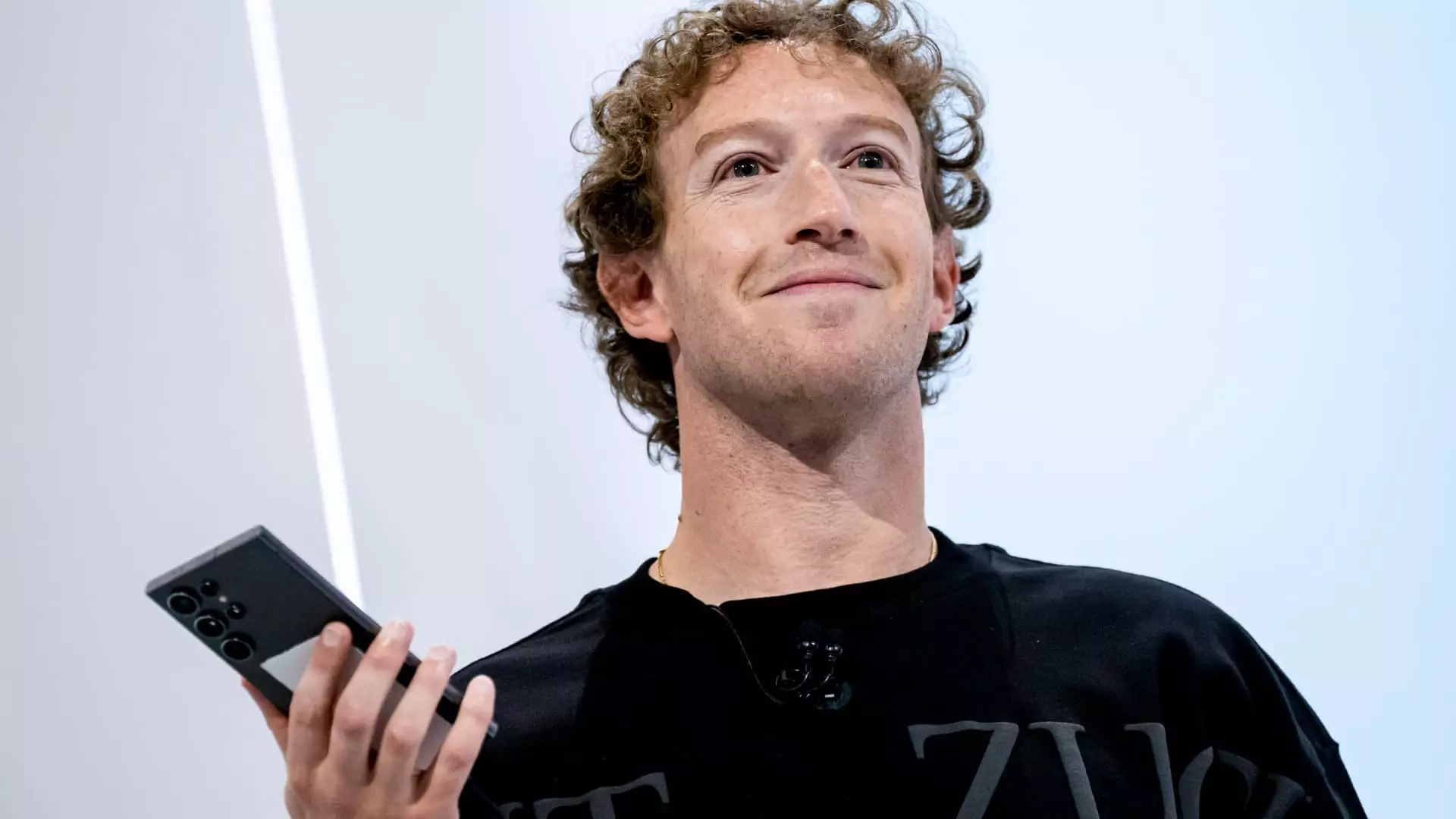In a recent episode of the “Joe Rogan Experience,” Meta CEO Mark Zuckerberg turned the spotlight on rival Apple, critically assessing its contributions to innovation and the practices that have seemingly constrained market evolution. With a mix of admiration and disappointment, Zuckerberg articulated concerns about Apple’s recent trajectory, suggesting that while the iPhone revolutionized communication, the company is now resting on its laurels, putting forth “random rules” that could stifle creativity and competition in the tech space.
Zuckerberg began his commentary by recognizing the monumental impact of the iPhone, acknowledging that its release gave rise to a mobile-first world that empowered millions. This sentiment is widely shared, as the iPhone fundamentally altered not just how we communicate, but how we navigate day-to-day life. However, Zuckerberg’s critique raises an important question: has Apple continued this momentum of innovation? In his view, the answer is a resounding no. He posits that Apple’s reliance on a proven but stagnant product lineup has led to a lack of substantial advancements in recent years, with new phone models failing to dazzle consumers or inspire upgrades.
This underscores a broader issue in the tech industry: the challenge of continually breaking new ground. As markets mature, the urgency to innovate is often overshadowed by the security of existing products. This tension presents a unique dilemma for companies like Apple, which must balance shareholder expectations with the aspiration to lead the tech frontier.
Zuckerberg further criticized Apple’s business model, asserting that the massive success of the iPhone has not translated into equitable consumer value. He highlights the phenomenon where customers are now more reluctant to upgrade their smartphones, leading Apple to alter its revenue strategies to maintain profit margins. “How are they making more money as a company?” he asked rhetorically, suggesting that Apple’s methods involve charging developers hefty fees and fostering dependencies on proprietary accessories, like AirPods.
This lays bare a critical friction point in the tech world: the monopolistic tendencies of platform holders. By leveraging their operating system’s control, companies like Apple can impose fees that may seem exorbitant to smaller developers. This practice can disable innovative potential, as external creators face barriers to entry and solutions that could benefit consumers are stifled.
A significant facet of Zuckerberg’s criticism centered on Apple’s narrative of prioritizing consumer privacy and security. He argues that the company has cleverly utilized these principles to justify its restrictive rules. Instead of perceiving this stance as a protective measure for users, Zuckerberg views it as a tactic to maintain market control.
In today’s environment where data privacy is paramount, it is essential for tech companies to develop secure systems. However, Zuckerberg’s suggestion that Apple’s approach may be more about control than genuine concern raises eyebrows. By limiting connectivity options to only those products sanctioned by Apple, they not only secure a competitive advantage but also obscure potential innovations from being realized.
The conversation touched upon Apple’s Vision Pro headset, a product that has not lived up to marketing expectations. Zuckerberg acknowledged the challenge of rolling out new technologies, yet he believes that Apple’s failure to have a successful product launch with Vision Pro indicates deeper issues within their innovation strategy. He suggested that while the initial iterations of any new device may falter, a more concerted effort is needed to push the envelope from concept to successful execution.
By comparing it with Meta’s own products, like the Meta Quest, Zuckerberg implies that relentless pursuit and iterative improvement are essential in the tech industry, which has seemingly become an afterthought for Apple as it navigates its current offerings.
In sum, Zuckerberg’s critique presents a compelling narrative about the state of innovation in technology. As the competition between Meta and Apple continues to unfold, it’s evident that the future of tech innovation may depend on breaking free from restrictive practices and nurturing an environment ripe for creativity. Zuckerberg’s candid reflections serve as a reminder that while the tech giants have indeed changed the world, the onus is now on them to keep that spirit of innovation alive in an increasingly competitive landscape. Perhaps it’s time for Apple to heed this call and return to its roots of pioneering change rather than clinging to past successes.


Leave a Reply